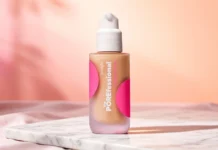Jurata Thin Film is bringing to market its technology, which allows biologics and vaccines to be packaged, shipped, and stored at room temperature for extended periods of time. MSI-TX Thin Film enables up to 500 doses of a vaccine to be placed on a single wafer-thin 8.5 -11-inch (216 x 280mm) sheet of film, weighing just 5g. It contains a proprietary surfactant-stabilized cellulose matrix material, which was developed at Texas University College of Pharmacy in Austin, Texas, USA.
The film allows the same amount of vaccine, or other biologics, to be delivered at room temperature in less than 1% of packaging volumes than presently required, claims Jurata. The technology would remove the need for specialized storage containers and cold storage requirements for biologics as well as mass quantities of glass vials, it says. First published in 2015 by Maria Croyle, RPh, PhD, the film, transfer process, and reconstitution process have been fully tested and are ready for commercial use.
According to the International Air Transport Association (IATA), it is estimated that delivery of one dose of COVID-19 vaccines to the world’s 7.8 billion people will require 8,000 jumbo jet cargo planes. With most vaccines under development as a two-dose regimen, this would bring that total to 16,000 jets. According to Croyle, MSI-TX Thin Film can deliver the same amount of vaccine with just 4 jets.
The technology represents a fundamental shift in biologic packaging and storage technology that removes the need for specialized storage containers and -80º C (-140º F) freezers that today are required to ship and store biologics, according to the Jurata. If the biopharma industry embraces and successfully integrates the technology into its manufacturing and finishing processes, the result will be accelerated delivery and access to vaccines for COVID-19 and other diseases, it says.
“This is truly groundbreaking technology that can fill a critical need to meet the packaging and distribution challenges for COVID-19 vaccines,” said Dr Croyle. “8,000 uncut sheets of the film can hold more than four million vaccine doses, which can be distributed in envelopes through standard shipping methods to anywhere in the world and stored in a two-drawer filing cabinet.”
Films can be produced at any size with a wide range of dosages to elicit the appropriate therapeutic effect. There is no loss in therapeutic potency of film stored at room temperature for up to three years; single dose solutions cut from film can be rehydrated in most widely used solutions in less than 15 minutes; after rehydration, the therapeutic remains stable for eight months at room temperature; it provides ≥90% viral payload even through multiple freeze/thaw cycles; and film stability and payload potency remain consistent at extreme temperatures.
“We are working to advance the commercial application of MSI-TX Thin Film and integrate it with manufacturing processes, thereby removing major supply chain and logistic challenges currently associated



























